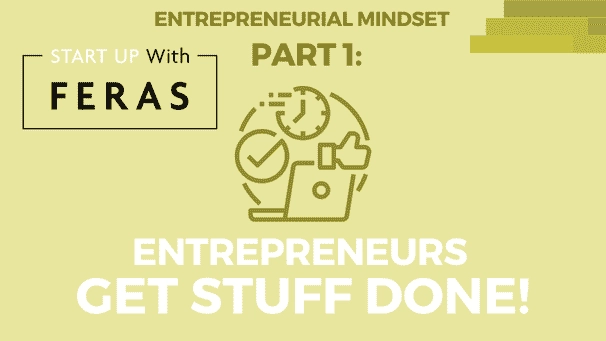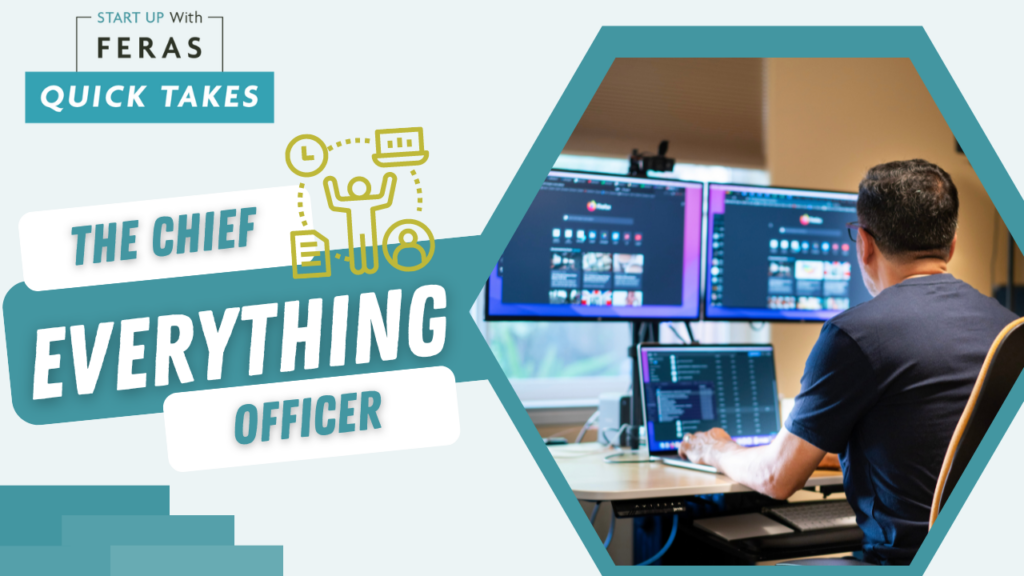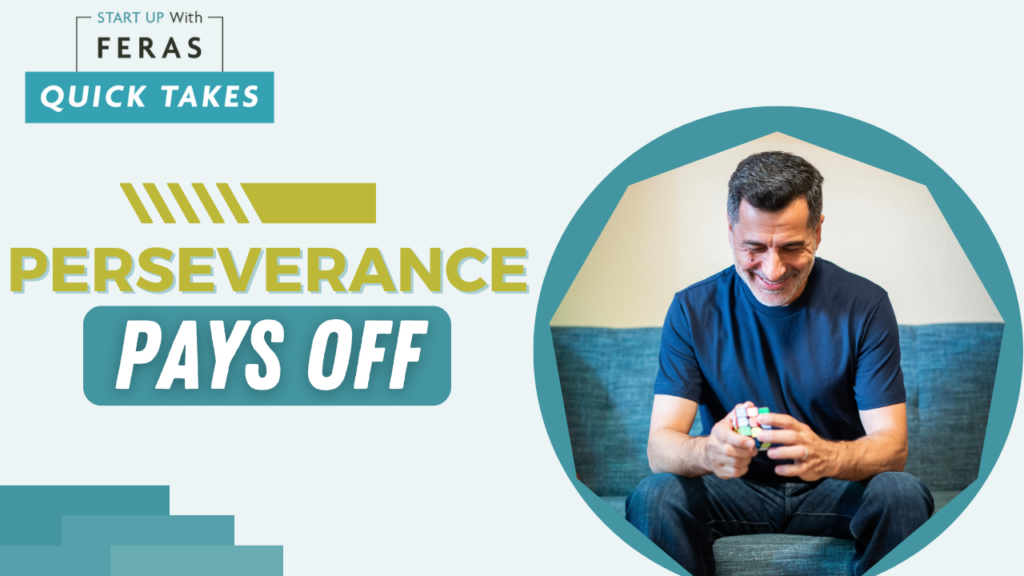Visionary or Detail-Oriented? A Growth Mindset Can Help Both Entrepreneur Types

“We are stubborn on vision. We are flexible on details.”
– Jeff Bezos
What kind of entrepreneur are you?
- the big-picture thinker, the visionary, able to imagine the best outcome, predict trends, and see new growth opportunities?
- more of a detail-oriented leader, able to see the smallest of steps and obstacles and plan accordingly
Both approaches to business are important, and both types of people can be successful as entrepreneurs. Many entrepreneurs come with a blend of both traits but tend to lean more heavily toward one or the other.
My challenge to you:
- Identify your natural tendency.
- Be mindful of its benefits and downsides.
- If you’re in the position to do so, hire or partner with people who have complementary traits.
- Whether or not there are others there to balance you out, cultivate the opposite side of your own natural strength or inclination.
The ability to operate effectively on both ends of the spectrum is a critical skill that you can develop. If you fail to, you may hurt your business.
Pure visionaries have a tendency to overlook logistical obstacles and be overly optimistic in their deadlines. For instance, promising a new client that you can complete their new system in a month when it will actually take 3 months will surely tarnish your reputation.
But being too detail-oriented can be equally damning. A steady, heads-down focus on digging the trench is often necessary when you’re starting and running a business, but if you don’t stick your head out once in a while, you could dig that trench in the wrong direction. Many entrepreneurs have missed the newest opportunities simply because they didn’t notice shifts in the market, like an IT consultant who does not stay current on cybersecurity.
Or, as an even worse scenario for a detail-oriented entrepreneur, you could spend so much time imagining what-if scenarios that you never take the actions to actually build your business.
A Tale of Two Steves
Let’s talk about the Steves who founded Apple Computer — Steve Jobs and Steve Wozniak. While they were both highly skilled in many areas, Steve Jobs was the visionary and Steve Wozniak worked on the technical details to meet Jobs’s seemingly impossible (at times) vision.
Which Steve are you? How can you build on the mindset that the other Steve was naturally good at?
The Mindset that Allows Either Type of Entrepreneur to Grow
Developing a growth mindset can make the visionary entrepreneur better at detail and the detail-oriented entrepreneur better at vision.
I’ve talked before about the growth mindset and the work of Carol Dweck. Here it is in a nutshell:
- People with a fixed mindset believe they have a finite set of attributes and skills — they’re either good or bad at something; they can do something or they can’t. For them, there’s no middle ground.
- People with a growth mindset, on the other hand, believe it’s okay to be bad at something at first — it doesn’t reflect poorly on their self-image. They just commit to getting better regardless of how many mistakes they make along the way.
So while you will have a natural proclivity towards being a big-picture visionary or a master of details, what matters most is believing you can grow and develop in the area toward which you’re less inclined.
You can encourage your shift in thinking by:
- keeping a growth mindset, as outlined above
- blocking time in your calendar — let’s say 60 minutes every one or two weeks — to build the skills that will complement your natural tendency
How a Visionary Entrepreneur Can Master Details
If you’re a visionary, I challenge you to block a chunk of time in your calendar to mind map the details. If it seems tedious, start with 3 to 5 big milestones you will need to hit to make your vision a reality. Ask yourself questions like:
- What minor steps, processes, or people will need to be in place to hit target X?
- Who would I need to contract or hire?
- What could go wrong?
- What small obstacles or hurdles could prevent X from happening within this timeframe?
- If the plan doesn’t work, what are a few fallback ideas?
How a Detail-Oriented Entrepreneur Can Develop Vision
If you’re more detail-oriented, visionary thinking can feel like a waste of time, you can begin developing your big-picture thinking by asking yourself the following questions:
- What could the business look like in 10 or 20 years?
- How could you own your market?
- What trends could disrupt the market that you could avoid or take advantage of?
- What would an ideal workweek look like for you and your staff?
- What would make your company the go-to company for clients and top talent?
Success Depends on a Combination of Factors
Again, you may feel uncomfortable during these counterintuitive exercises. But by developing these skills, you’ll be more attuned to your own business, and more open to listening to your opposites whether they show up as business partners or employees.
In the end, success in entrepreneurship is not determined by a single trait or approach, but by a combination of factors, including hard work, determination, adaptability, and a willingness to learn and grow. So whether you’re more like Steve Jobs or Steve Wozniak doesn’t matter as much as your commitment to your ultimate outcome.
Key Takeaways and Actions
Entrepreneurs should develop their visionary and detail-oriented thinking.
- Big-picture thinking: maintaining the business’s main direction, and looking for future trends, opportunities, and possible impediments to long-term growth.
- Detailed thinking: the focused, day-to-day strategies, tactics, and tasks for making progress and avoiding obstacles.
Understand the side you’re stronger on, and set aside time to focus consciously on the other.




